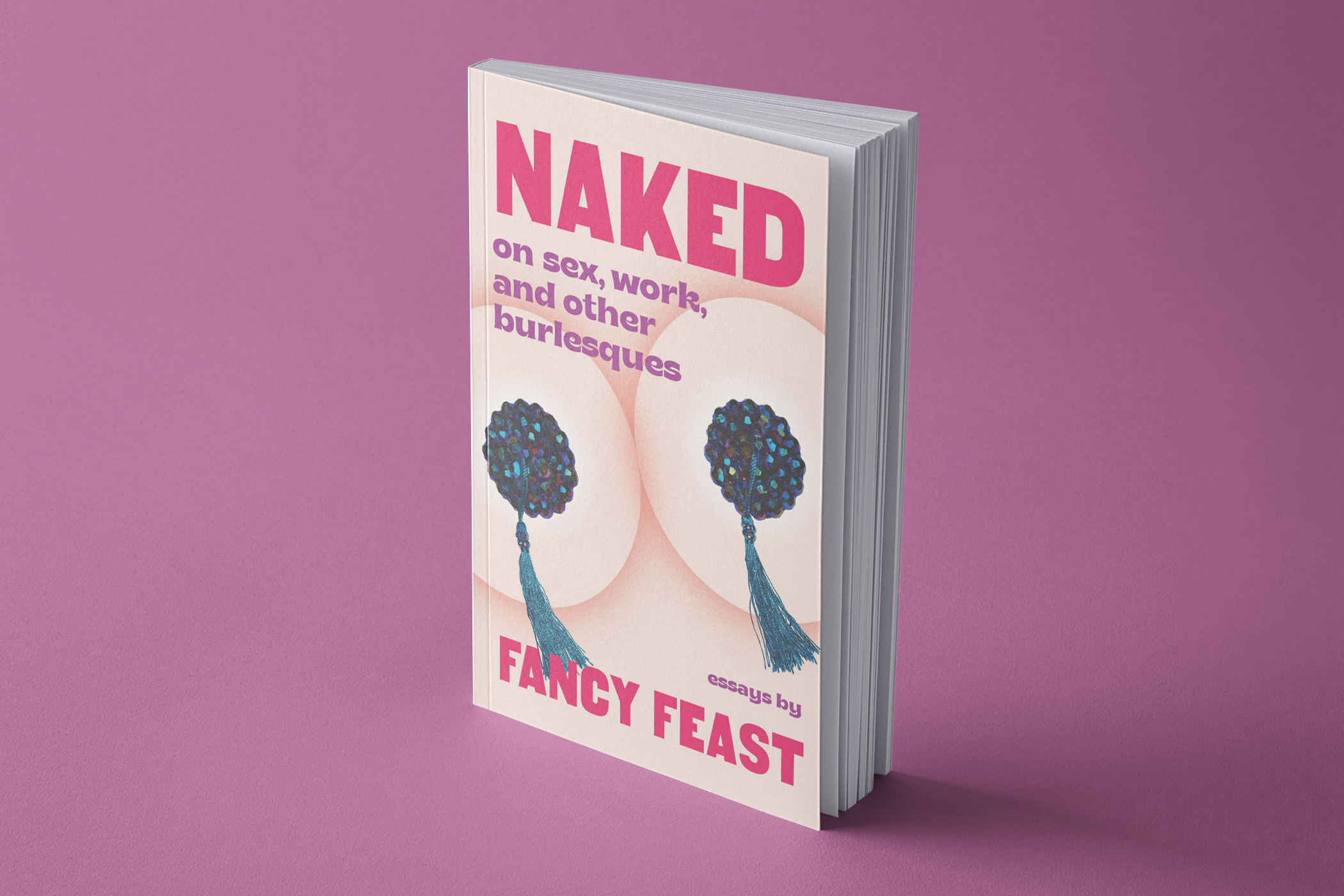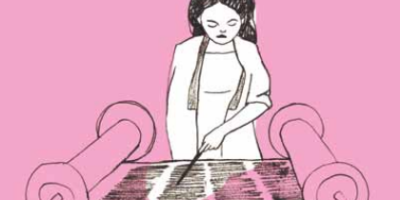
A Burlesque Memoir
Burlesque performer Fancy Feast’s new essay collection, Naked: On Sex, Work, and Other Burlesques (Hachette Book Group, $18.99) provides a refreshing and unpretentious criticism of our culture’s prudishness through personal stories. Fancy shares her experiences surviving fatphobia, whorephobia, and sexual exploitation with a voice that exudes con- fidence, playfulness, and humor.
Through her writing, Fancy challenges the norms of the writing and publish- ing world. First with blunt descriptions of her own sex life—she does not use euphemisms for body parts or sex acts. While reading, you might find yourself flinching; Fancy’s narrative voice remains unfazed. Fancy’s subversiveness extends beyond content to form with illicitly long, unpruned sentences. She delivers her wit with excess and a deliberate lack of efficiency (a fuck you to Strunk and White). The structure of the book deviates as well. Essays are meandering, often tangential journeys on themes that might present attention-span challenges for readers used to efficiently-organized chapters on narrowly-organized subjects.
In her best chapter, “Yes/No/Maybe,” Fancy strings together three different eras of her life to explore the ethics and nuances of consent. Using anecdotes to form convincing political arguments, Fancy presents a full range of gray area exploitation, from minor miscommunica- tions and embarrassments to demoralizing instances of misogyny and sexual violence.
Fancy’s vulnerability returns us to the genre of memoir. In “Yes/No/Maybe,” Fancy describes her experience as a young study-abroad student at a film school in Prague, where a group of male classmates cast her in a staged rape scene that led to real-life sexual assault. In their willful neglect of blocking and planning, the students acted out their violent desires under the guise of creating art. This anec- dote reveals the pervasiveness of violence and misogyny in the culture we consume, as well as the thin line between entertain- ment and reality. And that is one of the major themes of this collection: the way performance and real life bleed into each other and reveal things about the per- former and the audience.
As Fancy explains in the opening essay about her Burlesque tease—a show reveals as much about the audience as the performer: “Maybe mine is the first fat body that my audience has ever seen unclothed in person, displayed for their gaze on purpose without shame or apology…Whether they’re shocked, disgusted, aroused, angered, or excited by the sight of me, their reaction undresses them, not me.” While reading this book, you might find yourself bristling at the style and content. It might feel too political, too vulgar, too messy. And in these moments you might ask yourself why it bothers you. Perhaps the discomfort says more about the reader than the author.
Shayna Goodman is a writer and social worker. Her essays have appeared in New York Magazine, Jewish Currents, and Refinery 29 among other places.






